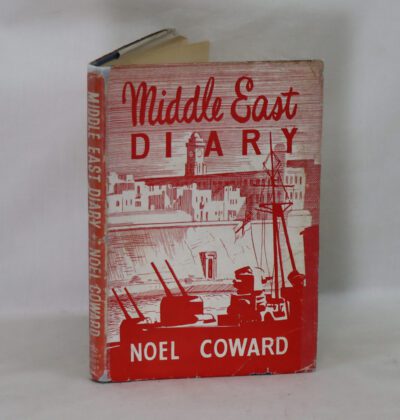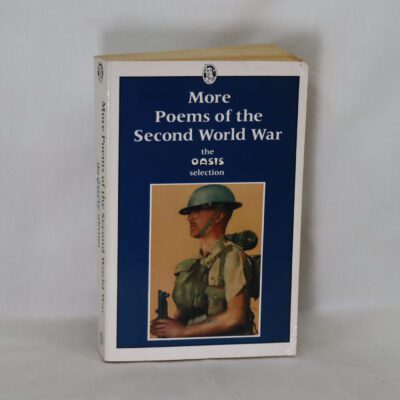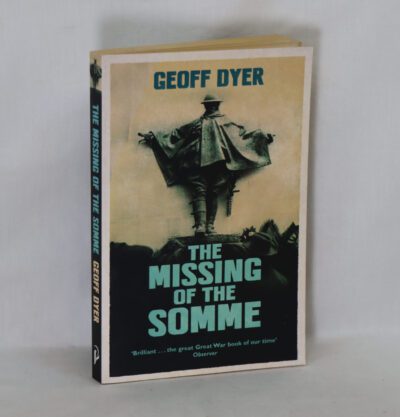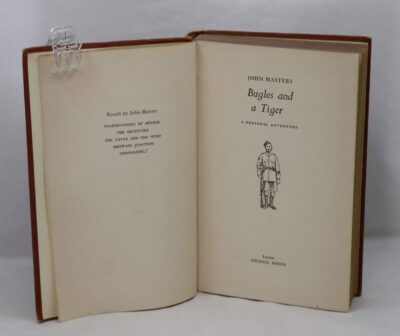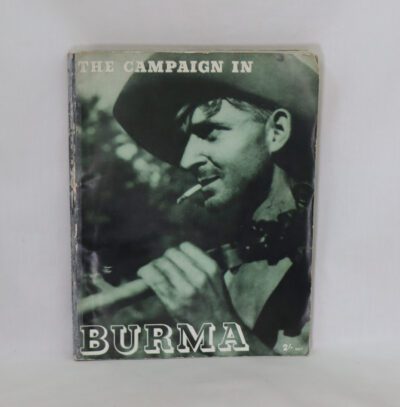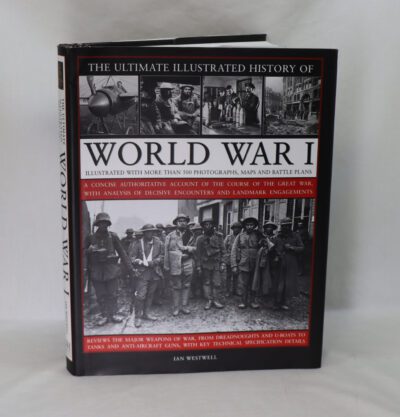Kitchener's Army and the Territotial Forces.
By Edgar Wallace
Printed: 1915
Publisher: George Newnes. London
| Dimensions | 22 × 28 × 2.5 cm |
|---|---|
| Language |
Language: English
Size (cminches): 22 x 28 x 2.5
Condition: Fair (See explanation of ratings)
Your items
Item information
Description
Red cloth binding with gilt title on the spine and front board.
-
We provide an in-depth photographic presentation of this item to stimulate your feeling and touch. More traditional book descriptions are immediately available.
-
Note: This book carries the £5.00 discount to those that subscribe to the F.B.A. mailing list.
First Edition. 1915: Good to very good copy in the original gilt-blocked cloth. Spine bands and panel edges somewhat bumped and rubbed as with age. Remains quite well-preserved overall. Suggested date of publication. Physical description: 6 pts. (iv, 188 p.) : ill. (some col.), ports. ; 29 cm. Some copies were bound by different publisher’s with different cover and spine titles while the main body of the text remains the same, e.g.: “In the King’s army: from citizen to soldier” by Combridge and “At Kitchener’s call: Britain’s new armies” by J. Askew. Subjects: Kitchener, Horatio Herbert Kitchener Earl – 1850-1916. Great Britain. Army. 1 Kg
Field Marshal Horatio Herbert Kitchener, 1st Earl Kitchener (24 June 1850 – 5 June 1916) was a British Army officer and colonial administrator. Kitchener came to prominence for his imperial campaigns, his involvement in the Second Boer War, and his central role in the early part of the First World War.
Kitchener was credited in 1898 for having won the Battle of Omdurman and securing control of the Sudan, for which he was made Baron Kitchener of Khartoum. As Chief of Staff (1900–1902) in the Second Boer War he played a key role in Lord Roberts’ conquest of the Boer Republics, then succeeded Roberts as commander-in-chief – by which time Boer forces had taken to guerrilla fighting and British forces imprisoned Boer and African civilians in concentration camps. His term as Commander-in-Chief (1902–1909) of the Army in India saw him quarrel with another eminent proconsul, the Viceroy Lord Curzon, who eventually resigned. Kitchener then returned to Egypt as British Agent and Consul-General (de facto administrator).
In 1914, at the start of the First World War, Kitchener became Secretary of State for War, a Cabinet Minister. One of the few to foresee a long war, lasting for at least three years, and having the authority to act effectively on that perception, he organised the largest volunteer army that Britain had seen, and oversaw a significant expansion of materiel production to fight on the Western Front. Despite having warned of the difficulty of provisioning for a long war, he was blamed for the shortage of shells in the spring of 1915 – one of the events leading to the formation of a coalition government – and stripped of his control over munitions and strategy.
On 5 June 1916, Kitchener was making his way to Russia on HMS Hampshire to attend negotiations with Tsar Nicholas II when in bad weather the ship struck a German mine 1.5 miles (2.4 km) west of Orkney, Scotland, and sank. Kitchener was among 737 who died; he was the highest-ranking British officer to die in action in the entire war.
Richard Horatio Edgar Wallace (1 April 1875 – 10 February 1932) was a British writer of sensational detective, gangster, adventure, and sci-fi novels, plays and stories.
Born into poverty as an illegitimate London child, Wallace left school at the age of 12. He joined the army at age 21 and was a war correspondent during the Second Boer War for Reuters and the Daily Mail. Struggling with debt, he left South Africa, returned to London and began writing thrillers to raise income, publishing books including The Four Just Men (1905). Drawing on his time as a reporter in the Congo, covering the Belgian atrocities, Wallace serialized short stories in magazines such as The Windsor Magazine and later published collections such as Sanders of the River (1911). He signed with Hodder and Stoughton in 1921 and became an internationally recognised author.
After an unsuccessful bid to stand as Liberal MP for Blackpool (as one of David Lloyd George’s Independent Liberals) in the 1931 general election, Wallace moved to Hollywood, where he worked as a script writer for RKO. He died suddenly from undiagnosed diabetes, during the initial drafting of King Kong (1933).
Wallace was such a prolific writer that one of his publishers claimed that a quarter of all books in England were written by him. As well as journalism, Wallace wrote screen plays, poetry, historical non-fiction, 18 stage plays, 957 short stories and over 170 novels, 12 in 1929 alone. More than 160 films have been made of Wallace’s work.
In addition to his work on King Kong, he is remembered as a writer of “the colonial imagination”, for the J. G. Reeder detective stories, and for the Green Archer serial. He sold over 50 million copies of his combined works in various editions and The Economist in 1997 described him as “one of the most prolific thriller writers of [the 20th] century”. Although the great majority of his books are out of print in the UK, they are still read in Germany. A 50-minute German TV documentary was made in 1963 called The Edgar Wallace Story, which featured his son Bryan Edgar Wallace.
Condition notes
Want to know more about this item?
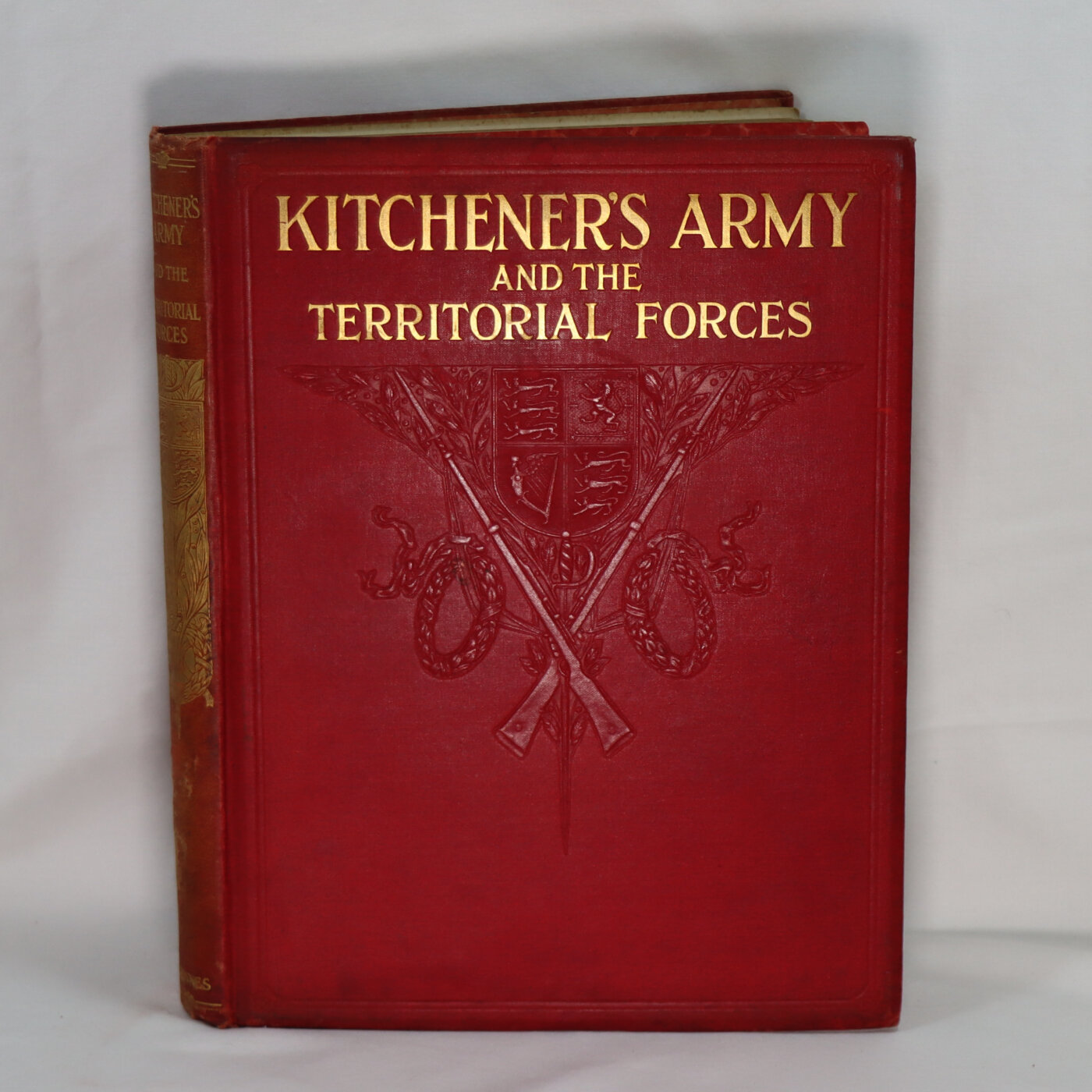
Related products
Share this Page with a friend








